PYTHON SPARK (PYSPARK)
a spark prog has 2 programs:
- dirver program: runs on driver machine
- worker program: runs on local threads or cluster nodes
a spark prog first creates a SparkContext object:
- tells how and where to access a cluster
- shell will automatically create the sc varible
- in iPython: use constructor to create a
SparkContextobj - ⇒ use this SparkContext obj to create RDDs
Master:
The master parameter (for a SparkContext) determines which type and size of cluster to use
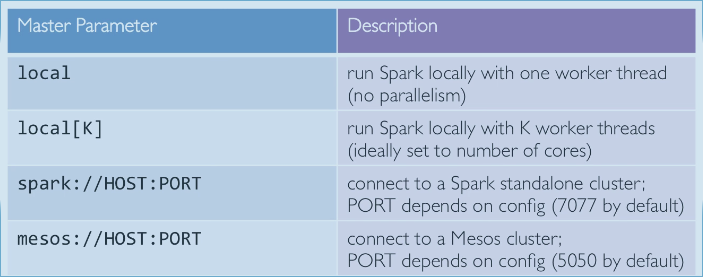
RDDs
Resilient Distributed Dataset:
- immutable once created
- spark tracks linege information to compute lost data efficiently
- operations on collections of elements in parallel
to create RDDs:
- paralizing existing python collections
- transforming existing RDDs
- from files
- can specify the number of partitions for an RDD
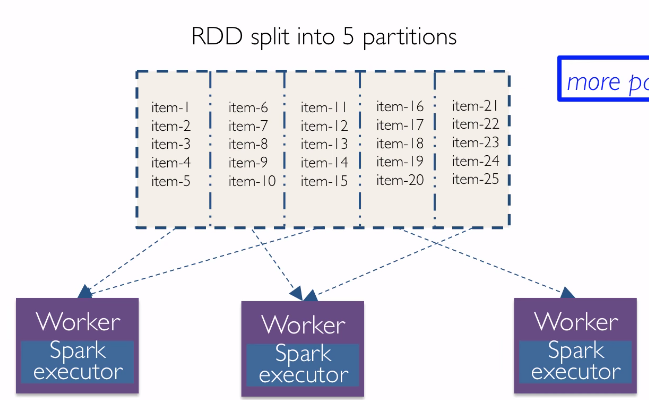
2 types of operations on RDD:
- tranformation: lazy, executed only one action runs on it
- action
Working with RDD:
- create an RDD
- apply transformations to that RDD (ex. map, filter)
- apply actions on RDD (collect, count)
ex code:
data = [1,2,3,4]
rDD = sc.paralize(data, 4)
distFile = sc.textFile("readme.txt", 4) // elements are lines in the file
SPARK TRANSFORMATIONS
to create new dataset from existing one (lazy)
examples of transformations:
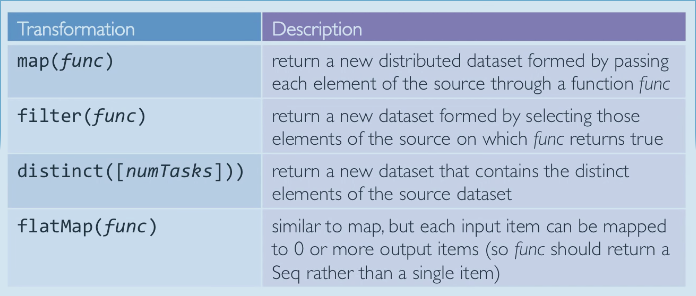
PYTHON LAMBDA FUNCTIONS
single expression
TRANSFORMATIONS
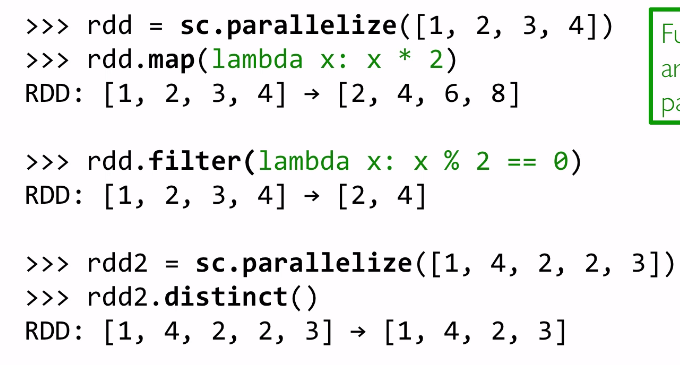
⇒ spark truns the function litral into a cloture, balck code runs in driver, green code in workers
SPARK ACTIONS
cause spark to execute recipe to transform source.
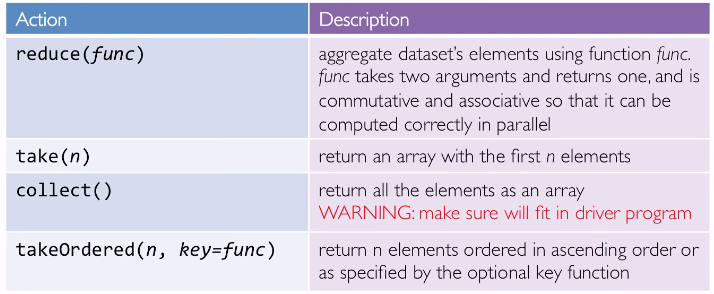
SPARK PROGRAMMING MODEL
CACHING RDDS
to avoid having to reload data: rdd.cache()⇒ read from memory instead of disk

SPARK PROGRAM LIFECYCLE
create/paralise ⇒ transform ⇒ [cache] ⇒ action
SPARK KEY-VALUE RDDS
each element of a pair RDD is a pair tuple
key-value transformations:
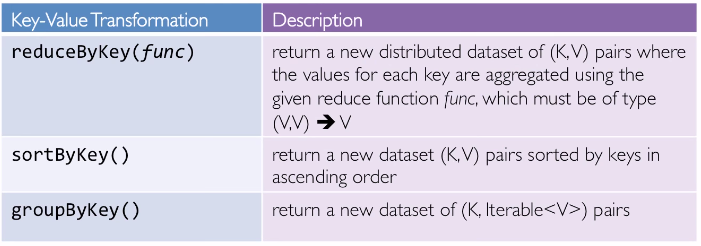
ex:


careful using groupByKey: create lots of data traffic and iterables at works
PYSPARK CLOSURES
- one closure per worker is sent with every task
- no communication between workers
- changes to global vars will not effect driver / other workers
⇒ pbs:
- inefficient to send large data to each job
- one-way: driver → worker
pyspark shared vaiables: 2 types:
- Broadcase variables:
- send large, read-only variables to all workers
- Accumulators
- aggregate values from worker to drivers
- only driver can access its value
- for workers the accumulators are write-only
SPARK BROADCAST VARIABLES
ex. give every worker a large dataset
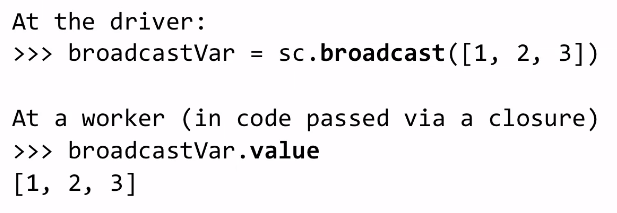
SPARK ACCUMULATORS
can only be "add" to by associative operation
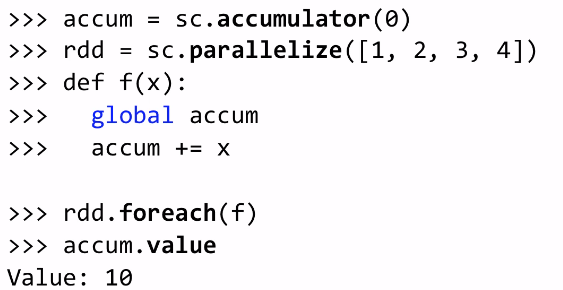
careful to use accumulators in transformations:

Lab1
VB更新以后虚拟机打不开了, 解决办法在:
http://bbs.deepin.org/forum.php?mod=viewthread&tid=26001
Disqus 留言